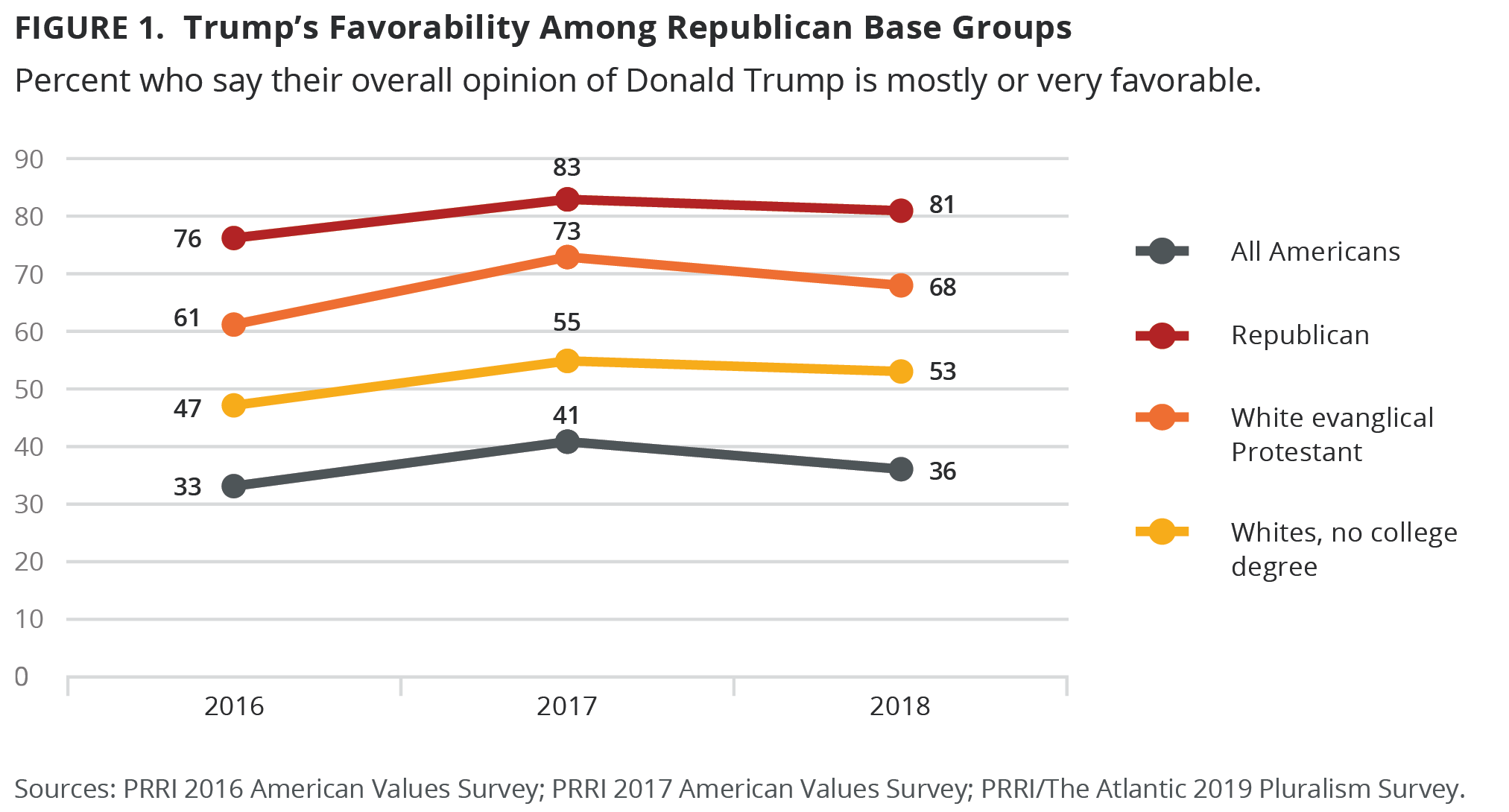At the Public Religion Research Institute, Maxine Najle and Robert P. Jones report on survey data:
After two years in office, the public’s view of President Trump remains negative. As of late December 2018, when this survey was conducted, only 36% of Americans reported that they held a favorable view of President Trump. Six in ten (60%) of the general public said their view of the president was unfavorable.
Perspectives on the president are deeply divided by political affiliation. An overwhelming majority (81%) of Republicans have a positive view of Trump, compared to 31% of political independents and only seven percent of Democrats. Republican support for Trump has remained steadfast over the course of Trump’s presidency, and Democratic support has remained low. Just before the 2016 election, 76% of Republicans had a favorable view of Trump, compared to only 6% of Democrats.[1]
Among religious groups, white evangelical Protestants continue to be Trump’s strongest supporters and remain the only major religious group in which a majority holds a favorable view of the president. More than two-thirds (68%) of white evangelical Protestants have a favorable opinion of the president, compared to 48% of white mainline Protestants, 35% of Catholics (and 47% of white non-Hispanic Catholics), 21% of nonwhite Protestants, and 21% of religiously unaffiliated Americans. Support for Trump among white evangelical Protestants has risen since September 2016 (61%), when he still was a presidential candidate. Over the course of Trump’s presidency, support from white evangelical Protestants has remained consistently high, with roughly two-thirds to three-quarters of white evangelicals holding a favorable view of Trump.
White Americans are, overall, more likely than nonwhite Americans to have a favorable view of Trump. Nearly half (47%) of white Americans have a positive view of Trump, compared to 22% of Hispanic Americans and only seven percent of black Americans. However, there are some noteworthy divisions in views of the president among whites. White Americans without a college degree have a higher opinion of the president than white Americans with a four-year college education: half (53%) of whites without a college education have a favorable opinion of Trump, compared to 35% of whites with a college degree. These levels of support among whites without a college degree have largely remained steady since September 2016, when 47% of white working-class Americans had a positive view of then-candidate Trump.
